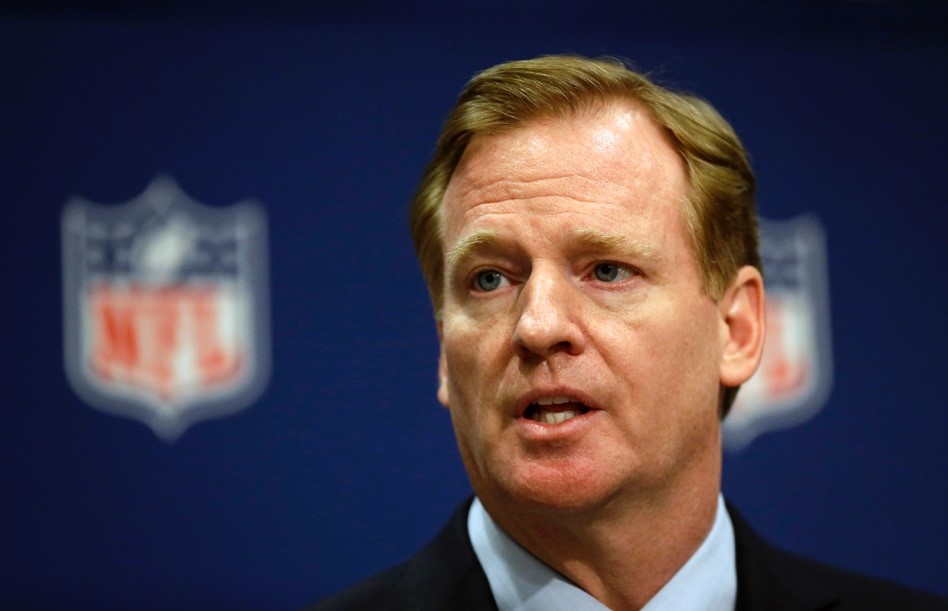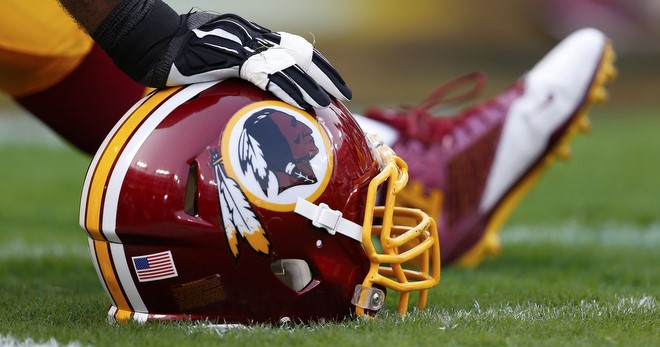By Alex Soderstrom
It’s happening again.
Sports and politics are mixing in the United States, coalescing to form a dangerous concoction that undermines the role of the private citizen.
On March 14th, the federal government, which has consistently found ways to become involved in the realm of sports since Teddy Roosevelt instituted rules changes to the new sport of American football over a hundred years ago, began another chapter in its dubious history of incursions into sports. The House Energy and Commerce Committee questioned several expert witnesses, inquiring about the link between sports and brain diseases such as chronic traumatic encephalopathy (CTE).
One of the witnesses called was Jeff Miller, the National Football League’s senior vice president for health and safety. Congresswoman Jan Schakowsky (D-IL) asked Mr. Miller a simple question, “Do you think there is a link between football and degenerative brain disorders like CTE?”
“The answer to that question,” Mr. Miller responded, “is simply yes.”

the risk of developing CTE while playing football.
(Photo Credit: USA Today)
This straightforward exchange marks the first time that a representative of the NFL has admitted that playing football is linked to developing CTE. League commissioner Roger Goodell has spent many years playing down possibility of a direct relationship between football and CTE, a link that the scientific community has insisted on for some time.
Yet it is far from the first time that the government has intervened in the business of the NFL or organized sports in general. It was only two years ago that it took on the league’s Washington Redskins. In 2014, the federal government canceled the team’s longtime trademark on the Redskins name. This was an indirect effort to pressure the team into changing its name, which is considered a slur toward Native Americans. In the end, the effort failed. The Washington Redskins’ name persists today.
Only a few years before that, the Justice Department opened an investigation into college football’s method of selecting a national champion — the Bowl Championship Series. The official explanation was that not selecting the champion via playoff possibly violated antitrust laws. In reality, the move reflected years of growing frustration amongst fans who yearned for a college football playoff, a decidedly fairer and more entertaining system. Though the investigation led nowhere, the BCS was dissolved after the 2013-2014 season, replaced by a playoff.
This only scratches the surface of the government sticking its nose into the affairs of professional and college sports. The full extent ranges from Congressional inquiries over steroid use in Major League Baseball in the mid-2000’s to the Justice Department bringing suit against Lance Armstrong after the cyclist confessed to taking performance enhancing drugs.
This phenomenon is not one way, since sports organizations find ample opportunity to become political themselves. The NFL recently showcased this increasing political activism right here in Georgia. House Bill 757, a bill meant to protect the religious freedom of religious officials and organizations, cleared the state legislature in March. Many businesses and organizations disagreed with the stated purpose of the legislation, saying the bill could be used to discriminate against members of the Georgia LGBT community. One of the leading voices in the charge against this act was the NFL, which said Atlanta could lose the opportunity to host the Super Bowl should the bill pass. On March 28, Governor Nathan Deal vetoed the bill, undoubtedly feeling the pressure put on by the NFL and others.
In light of this history, one has to wonder if such entanglement amongst sports and politics is compatible with the nation’s values. It is impossible to ignore that sports have their problems; one could even acknowledge that the federal government is well equipped to handle them. The government has clout far greater than any league commissioner, and is successful in bringing about changes that are long overdue and fixing situations that are downright unlawful. This was the case when members of the Kennedy administration worked with the NFL to pressure the Washington Redskins into desegregating in 1962.
But what happened to self determination? Or the free market? Sports, like any industry failing to meet the needs of consumers, should answer to the consumers, not the government.
In the case of the Washington Redskins and its name, it seems inevitable that such a situation would have drawn a political response. The name obviously has pejorative roots, and the team’s location in the nation’s capital makes it too easy of a target. But this does not make it okay for the government’s voice to replace the voices of average Americans. If the name is offensive, then citizens should demand a change. The last thing the Washington Redskins and owner Dan Snyder want is a dip in attendance and protesters outside the gates of the stadium. These are the steps needed to bring about change.
The same can be said for the other examples discussed. The BCS ultimately crumbled due to dwindling viewership. Around the time of Congress’ investigation into baseball, players known for steroid abuse such as Barry Bonds were becoming unmarketable. In an essence, the desires and values of fans are fully capable of regulating sports without government help. The government has no responsibility to step into the realm of sports, pressure for changes, and claim it is for the protection of its citizens. Citizens must protect themselves. The NFL, MLB, and NCAA will all pay close attention to shrinking revenue and the unrest of millions of fans. Likewise, they will all fight government intervention.
When it comes to the current example, the NFL’s recent admission puts it at a fragile crossroad. Fans and players alike need to see action that proves football is not doomed to be a breeding ground for a deadly brain disease. Undoubtedly, the NFL will be making changes to gameplay and medical protocol to help decrease the risk of players developing CTE, as it has done before. At the high school and college levels, similar changes will happen. And despite all of this, the government’s shadow will linger over this developing situation.
Make no mistake, CTE is a major problem for American contact sports. More than that, it is a grave health concern. Government attention on this issue is justifiable. But it is not for the government to lead the reformation of sports. The more private citizens step back from the situation and government action is normalized, the greater the chance for gridlock and resistance. Unfortunately, it is hard to see a scenario in which the government does not ultimately step in.
Because that’s American sports.
